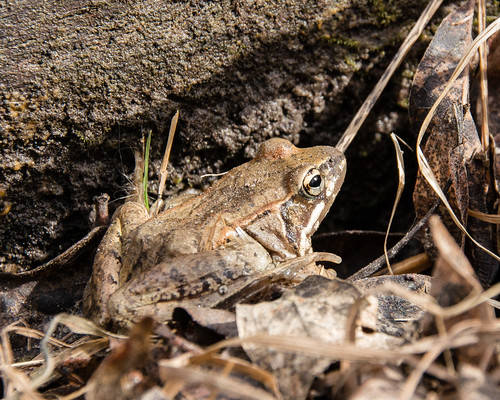The Saskatoon Nature Society is hosting an online presentation on amphibians at 7:30 pm, Sept. 16.
Library of Things, Saskatoon, will be open for pick-ups by reservation from the back door in the alley from 1-4 pm, Sept. 18.
Nature Regina is hosting a presentation on the Treaty Land Sharing Network at 7:30 pm, Sept. 20, at the Royal Saskatchewan Museum.
The Saskatoon Nature Society is inviting the public to attend a Sandhill Crane viewing from 6-8 pm, Sept. 20.
The Saskatchewan Environmental Society and the Saskatoon Public Library are offering an online presentation on Electricity in Saskatchewan: Current Status, Future Prospects from 7-8:30 pm, Sept. 21.
The Johnson-Shoyama Graduate School of Public Policy is hosting a video conference on nuclear development, communicating risk, and public engagement at noon, Sept. 23.
There will be a global climate strike at noon, Sept. 24, in Saskatoon.
Full event details can be found on the EcoFriendly Sask Calendar
Local News
William Hale has opened a used electric vehicle dealership in Saskatoon. William says he’s driven an electric vehicle (EV), winter and summer, for 3 years and loves it. “The electrification of transportation is one of the principal pathways to a low carbon economy and I want to help with this transition in Saskatchewan,” he explains. The dealership offers a lower-priced entry into the EV market and an opportunity to ask questions and test drive the vehicles. They also sell and install EV chargers for home use.
Green Shift Automotive in Regina sells a range of electric vehicles from bikes, scooters, and skateboards to hybrid and electric cars.
Alberta Lake Management Society is offering a fall webinar series with applicability across Canada.
Transportation
Exposure to traffic noise is associated with a range of health problems, including dementia, heart disease, diabetes, and obesity. [The Guardian]
The six problems aviation must fix to hit net zero: 1. fuel; 2. non-CO2 impacts, such as nitrogen oxides and contrail clouds; 3. frequent flyers; 4. policy development; 5. the new middle class; and 6. supersonic planes. [The Guardian]
Wildlife rescuers are the first to provide medical care for injured or sick animals and could provide an early-warning system for illnesses that also affect humans. [The Revelator]
“Mountain and boreal caribou are on a long-term slide to extinction; not because of what wolves and other predators are doing but because of what humans have already done.” [Raincoast Conservation Foundation]
“Rebugging is looking at the ways, small and large, to nurture complex communities of these tiny, vital players in almost all the natural and not-so-natural places on earth. It means conserving them where they are managing to hang on, and restoring them where they are needed as part of a rewilding movement. And it means putting bugs back into our everyday lives, our homes and where we play and work.” [The Revelator, an excerpt from Rebugging the Planet: The Remarkable Things that Insects (and Other Invertebrates) Do – And Why We Need to Love Them More by Vicki Hird)
When they’re not looking for a mate, some female hummingbirds are adopting the same brightly coloured ornamentation as males as it “helps them avoid aggressive male behaviors during feeding, such as pecking and body slamming.” [Science Daily]
Energy
“Air conditioning is the most obvious immediate response to the dangerous warming of the planet. It’s also making it worse. … People are going to keep buying air conditioners … so we need to offer them better, safer, cleaner devices … We’re doing a disservice to our citizenry when we let them buy something that is so expensive to operate, and so polluting that cooling is actually adding to the warming of the planet.” [The Guardian]
Coal-fired plants made up 40% of global energy output in 2010. Here’s a breakdown of consumption on a country- by-country basis as well as a look at steps that could be taken to end coal use. [Climate Solutions]
Despite what oil and gas companies would have you believe, blue hydrogen isn’t clean or economically viable. [DeSmog]
Did you know? Wood Frog hibernate under logs or leaf litter and can tolerate below-zero temperatures by increasing the amount of glucose in their blood, which lowers the freezing point and stops ice crystals from forming. [Nature Companion]
EcoFriendly Sask supports Saskatchewan environmental initiatives through an online publication, an events calendar, small grants, and the Nature Companion website/app.
You can follow EcoFriendly Sask by liking us on Facebook, following us on Twitter, or subscribing by email (top right corner).


